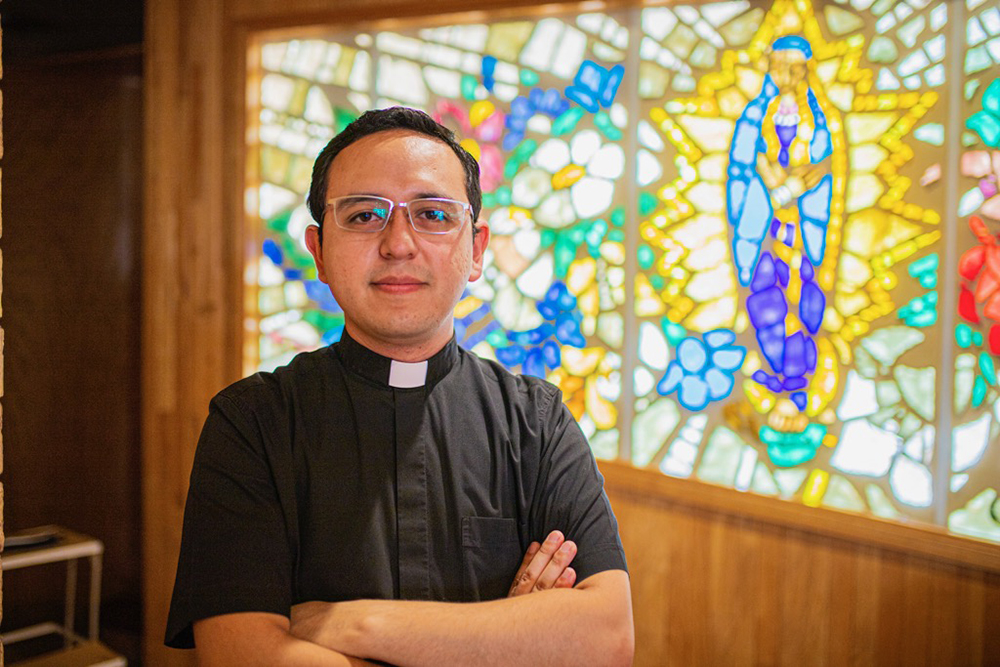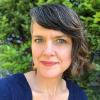
Fr. Iván Montelongo, who coordinated the diocesan phase of the synod for the Diocese of El Paso, Texas, is one of six non-bishop voting delegates from the United States chosen to represent the North America region in the Synod of Bishops on synodality in Rome Oct. 4-29. (Courtesy of Fr. Iván Montelongo)
There has been a lot of talk about listening to "those on the peripheries" during the worldwide synodal process, and that's due to a specific person, said Fr. Iván Montelongo, a priest from the Diocese of El Paso, Texas. "It's because of Jesus — Jesus reached out to people on the margins."
Montelongo, coordinator of the synod for his diocese, is one of the six non-bishop voting delegates from the United States who, along with four Catholics from Canada, will represent the North America region at the October Synod of Bishops on synodality in Rome. The Vatican shared a full list of participants July 7.
The church has always reached out to the marginalized, but in order to continue to do so in meaningful ways it needs to consistently grow and reform, the priest said in an interview with NCR soon after his appointment. The global synod offers a powerful time for both.
Advertisement
Montelongo feels a personal connection to those on the peripheries: He and his family are migrants from Chihuahua, a state in Mexico.
"I did not go through the hardships my parents and grandparents went through, or the hardships that other migrants go through during their journey to this country," said the 30-year-old. "But I understand a little bit of what it means to leave what you know behind."
He recalled a saying in Spanish: "No soy ni de aquí ni de allá" ("I’m neither from here nor from there").
The phrase, said Montelongo, captures the experiences of both first- and second-generation migrants "who are looked down upon by Latinos for not being Latino enough and by Americans for not being American enough."
Growing up in Chihuahua, about 240 miles from El Paso, Montelongo was active in a youth group and parish ministry and first felt called to the priesthood due to the witness of a pastor he admired.
"He was a very kind man, and when I was little, I knew I wanted to be like him," said Montelongo, who arrived in the border city of El Paso at age 15. He was ordained by Bishop Mark Seitz of El Paso in 2020.
The Diocese of El Paso held a diocesan synod between 1985 and 1986, said the priest, and from it emerged a pastoral plan and several important ministries, such as an institute for lay formation, outreach to the poor and homeless, and legal assistance for migrants.
"But with the passage of time, you get used to structures and married to them and you don't always think outside the box," said Montelongo. "They get old and there's a need for renewal." That's true for the global church, as well, he said.
One way the synodal process has changed his own ministry, said Montelongo, is it has made him more cognizant of his need to "always be attentive to the people of God."
"In the ministerial priesthood, when you are the head of a community, it's easy to do what you want or what you think is best," said Montelongo, who serves as vocations director and judicial vicar for the El Paso Diocese. "Many of us have good intentions, but we need to listen to the people, to always walk with them."
"In the ministerial priesthood, when you are the head of a community, it's easy to do what you want or what you think is best. Many of us have good intentions, but we need to listen to the people, to always walk with them."
— Fr. Iván Montelongo
Among his recent attempts to listen to the faith community: Montelongo submitted a reflection in both Spanish and English to a local newspaper asking Catholics in the region to re-engage with the synodal process and to reflect on the diocesan synthesis and on instrumentum laboris, the document forming the basis for discussion and discernment in October. Then, "please email the fruits of your reflection," he wrote in the newspaper piece.
Montelongo said he'll carry these and other reflections with him to Rome, along with the pain of those on the peripheries — including those who've drifted away from the church, the divorced and remarried, migrants and members of the LGBTQ community.
He also will bring with him the "joy and commitment" he regularly witnesses in his border diocese, said Montelongo.
"But I don't want to come with an agenda," the priest said. "I want to listen to the people, and I want to be open to the Spirit."




